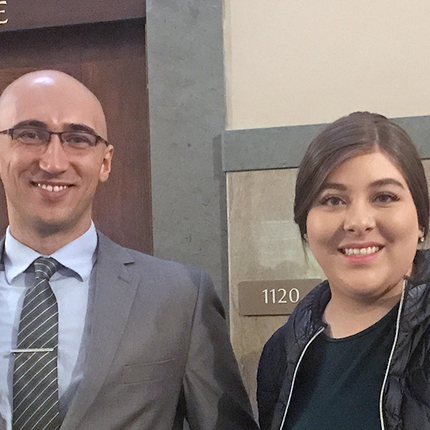By Jordan Feyerherm, former staff member
Five years ago, Deferred Action for Childhood Arrivals (DACA) was signed into law. This policy protects foreign born individuals who came to this country as children from deportation and allows them to apply for employment authorization.
For hundreds of thousands of Americans and over 3,000 Nebraskans with DACA status, the future is uncertain. People who know only the U.S. as home are now having to consider being deported to what amounts to an unknown land. People who have been living, working, raising families and paying taxes now face a growing fear, uneasiness, and above all, uncertainty. These individuals who have a tangible, positive impact on our country and economy are facing the possibility of losing everything they have worked for.
A majority of DACA recipients came to this country as small children; most were 10 years old or younger at the time of entry. These children grew up attending the same schools, watching the same television, and living in the same neighborhoods as children who were born in the U.S. Today, the average DACA recipient is 22 years old, has a job, is pursuing higher education, and makes $17 an hour; more successful than the average American born in the country ages 20 to 24.
To enact any law that would in any way impair these individuals’ capacity to learn, earn and live would be counterproductive and harmful to the country as a whole.
Because of DACA, these individuals have an increased capacity to benefit the U.S. economy. A recent survey found that DACA increased recipients’ earning and spending power in a myriad of ways.
- Recipients’ hourly wages increased by 42 percent after DACA was passed.
- 6 percent of recipients started their own business (compared to 3.1 percent for the American public).
- 21 percent purchased their first car after receiving DACA.
- 12 percent purchased their first home.
- 90 percent received a driver's license or state identification after receiving DACA.
All these factors directly benefit the local and national economy, while also improving the financial independence of recipients. Over a 10-year period, the economic impact of DACA recipients on Nebraska is estimated to result in:
- Cumulative increase in state GDP of $781 million;
- Cumulative increase in earnings of all state residents of $378 million;
- Cumulative increase in earnings of DAPA and DACA eligible workers of $315 million; and
- 100 jobs created annually on average.
DACA has provided hard-working young Nebraskans and their families with a measure of stability. They are a critical part of our state’s social and economic fabric and are actively contributing to local communities and economies. For many small Nebraska towns that have long struggled with attracting new residents, immigrants are keeping shops open and breathing fresh life into Main Streets across the state. As David Reinecke, mayor of Schuyler, says, “Schuyler would be dead without Latinos.” According to census estimates, Schuyler’s population of 6,196 people is more than 70 percent Latino.
Many other small counties and towns are experiencing similar revitalizations as Schuyler. Foreign born residents now make up 6.8 percent of Nebraska’s total population, many of whom are moving to rural communities across the state to pursue work and raise families. In 2014 alone, immigrants in Nebraska earned $2.5 billion and paid over $616 million in taxes, adding much needed economic stimulation to communities where the native born population is aging or moving away.
Legislation promoting the safety, well being, and welcoming of those with DACA status and their families will continue to uplift the many young people who want to put their talents to use and give back to the only country they have ever known as home.
Feature photo: Jordan Feyerherm, left, and Dulce Castañeda, right, offered testimony on March 22 in favor of LR 26 - protection of DACA, at the Nebraska Legislature. Feyerherm is a community organizer at the Center for Rural Affairs and Castañeda is the community assistance director for the City of Crete.




